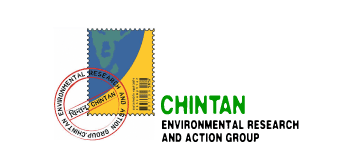Posted by Alliance of Indian Wastepickers
Written by Chintan
Region Asia-Pacific
Country India
November 06, 2013
On August 28th, 2013, the Ministry of Environment and Forests released the draft MSW Rules 2013 for public comments. These draft Rules are updating the original landmark Rules passed in 2000. Thirteen years later, we have learnt a lot about how to manage solid waste management programs that can clean our cities, provide jobs, and help reduce our burden on the environment. But these draft Rules have missed this incredible opportunity to apply the lessons we have learnt thus far.
Chintan Environmental Research and Action Group, and many other environmental and social activist organizations across India have submitted comments to these draft Rules. In brief, Chintan’s comments are summarized as follows:
1. Since 2000 when the original MSW Rules were issued, many policies and rules have been issued after much deliberation and civil society participation. This is an opportunity to take into cognizance those rules as well as the gaps and problems identified by the Comptroller and Auditor General of India in their 2008 audit report on municipal solid waste. These Rules should be synergistic with other policies such as the National Environment Policy 2006, the National Action Plan for Climate Change 2009. Further, because plastics and e-waste are commonly found in municipal solid waste, these Rules should explicitly specify synergies with the Plastic Waste (Management and Handling) Rules 2011 and E-waste (Management and Handling) Rules 2011.
2. The Draft Rules are silent on the ranking of waste management solution options. Waste management hierarchy is commonly accepted and used by governments across the world and needs to be developed and adopted in the Indian context also. Lack of waste management hierarchy results in the haphazard application of technologies, for many of which no standards exist.
3. There is need for explicitly recognizing the important of decentralized waste management solutions as this will be key to reducing the burden on municipalities as well as reducing greenhouse gas emissions from waste. To do this, space for storage, segregation, recycling and treatment must be allocated in city master plans at ward, zonal and municipality levels.
4. Finally, although many policies and rules have asked for the inclusion of the informal sector such as waste pickers and waste recyclers in waste management, their implementation has been inconsistent across the country. Because waste management provides a tremendous opportunity for ensuring livelihoods for the poor and lower municipal costs in the process, their inclusion needs to be taken seriously and must be reflected in these rules.
According to Bharati Chaturvedi, the founder-director of Chintan Environmental Research and Action Group, “Waste is a huge challenge for a rapidly urbanizing country like India. Rules that imbibe the experiences of last 13 years could help address the challenge. Otherwise, they will only add to it.” Chintan and other organizations hope that the Ministry of Environment and Forests will take these comments seriously and not miss an opportunity to create a cleaner, greener India.
For More Details Contact
Bharati Chaturvedi
Email: bharati@chintan-india.org
M:+91-9818400007Chitra Mukherjee
Email: chitra@chintan-india.org
M: +91-9811350663
Tweet


